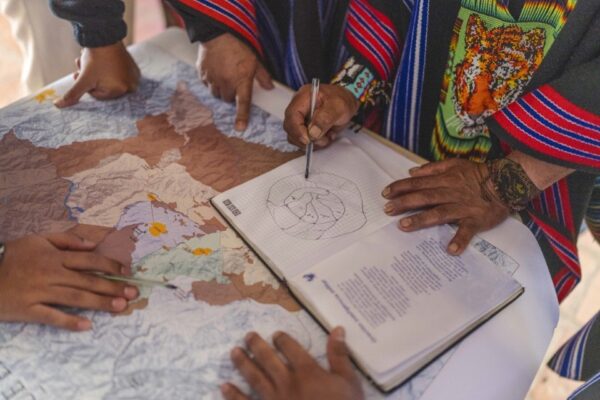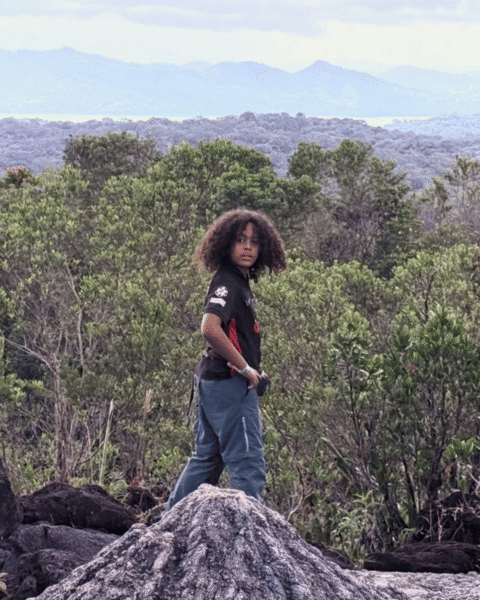Text by Méle Dornelas · Available in Portuguese.
The 7th Assembly of the Kokama People focused on land rights, education, health, and the preservation of language and traditional knowledge within the broader context of the climate crisis.
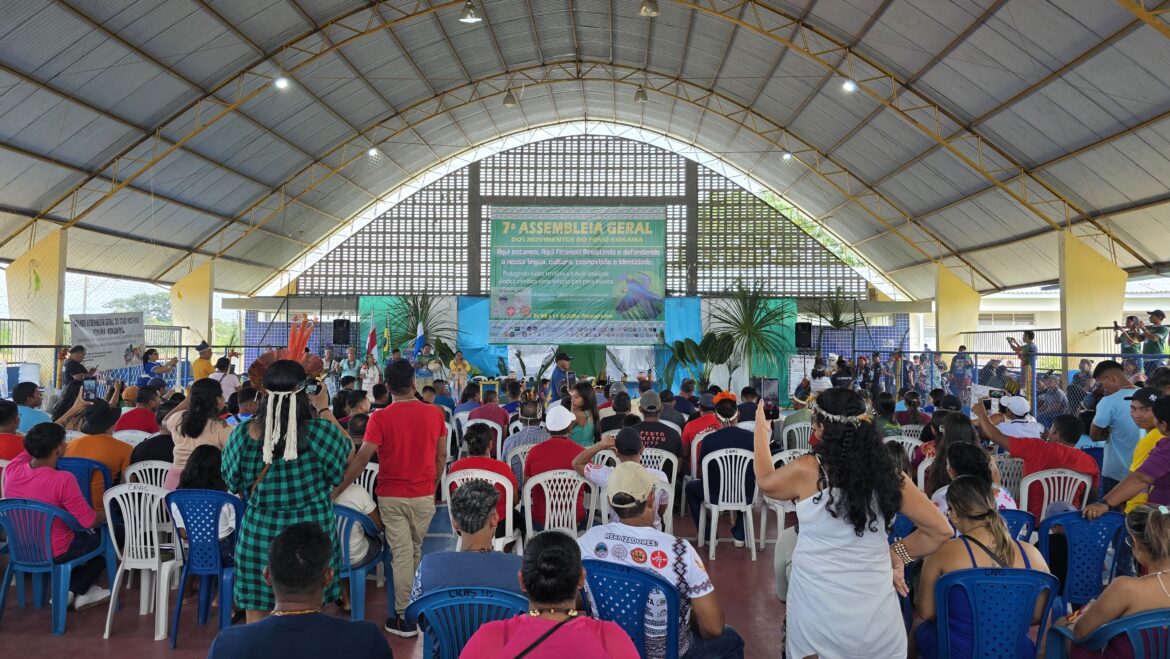
Held in Amaturá, in the state of Amazonas, from July 8–11, the 7th General Assembly of the Kokama People’s Movements marked an important milestone in the Indigenous struggle in the Alto Solimões region. The gathering brought together community leaders, women, youth, taitas (elders), teachers, and partners with the goal of strengthening the Kokama people’s resistance, cultural identity, and rights. Topics included land demarcation, Indigenous education and healthcare, and the protection and revitalization of traditional language and knowledge.
ACT-Brasil joined the assembly as a partner and supporter of the Kokama people and participated in key discussions, including the development of strategies to strengthen territorial protection. Centered around the theme “Protecting Our Territory and the Environment: Climate Justice as a Solution for the Kokama People”, the assembly focused on means for communities to defend themselves against external threats. The region is heavily impacted by illegal mining, drug trafficking, and land grabbing—activities that daily threaten the lives, dignity, and well-being of Indigenous peoples.
“We want our territory to be respected—and with it, the environment as well. Many invaders come here and bring harm through trafficking and deforestation. Right now, we’re working to strengthen ourselves, to protect our villages in a coordinated and united way,” said Glades Kokama, President of the Kokama Federation.
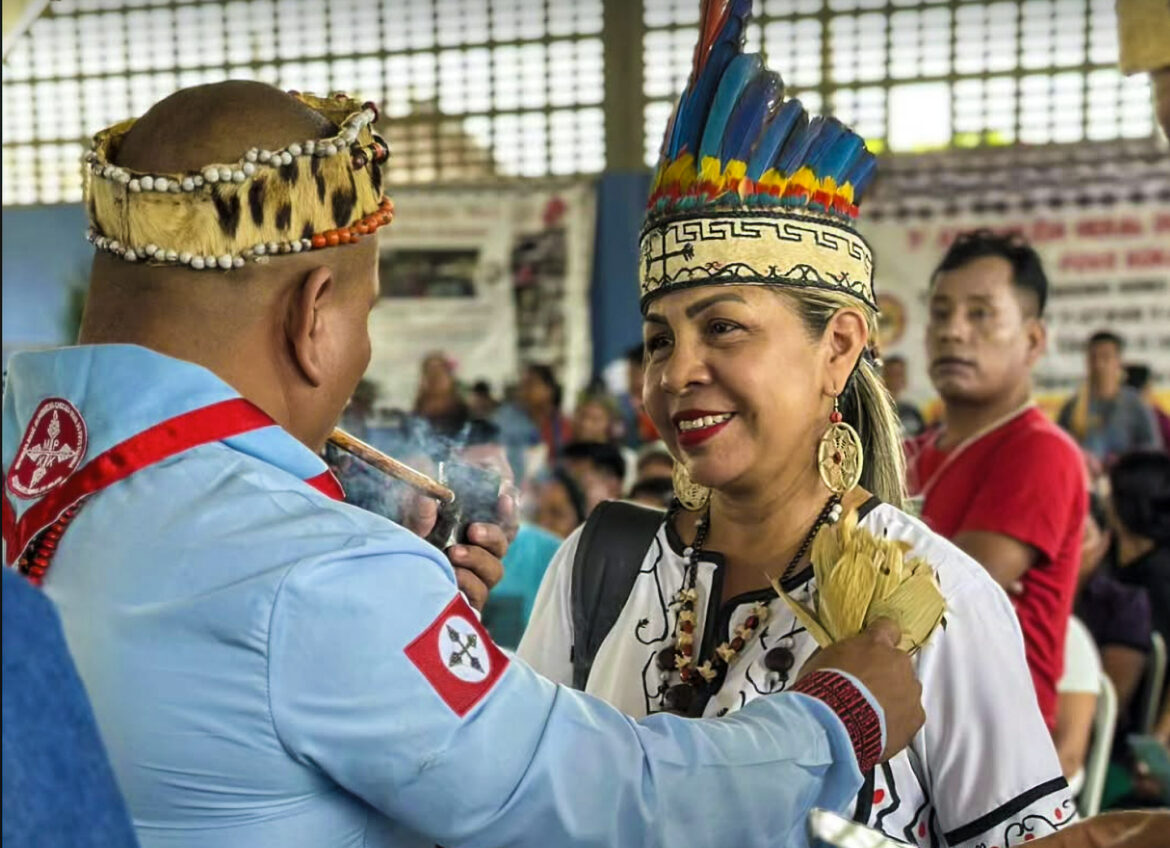
“Here We Resist, and Here We Exist”
Land demarcation—the foundational struggle of Brazil’s Indigenous peoples—was a central theme of the Assembly and aligns with the national movement against the so-called Marco Temporal (Timeframe Thesis), which establishes a historical date to recognize and validate indigenous land claims, specifically in 1988. Although the Brazilian Supreme Federal Court (STF) has ruled this doctrine unconstitutional, Congress recently passed a law attempting to reinstate it. The issue remains contested, but for Indigenous peoples, it represents a serious threat to their ancestral rights and has sparked mobilizations across the country. The outcome now hinges on final decisions by the STF and possible legislative shifts.
Glades emphasized that climate justice is inseparable from the demarcation of Indigenous lands:
“There is still so much left to be demarcated in the Kokama territory, and we know the Marco Temporal seeks to make it even harder. That’s why we’re holding our 7th Assembly: for the demarcation of our land. It’s through our land that we access culturally relevant healthcare and education—and that we achieve climate justice. Without land demarcation, all of that is at risk. There are those who want to strip away our resources, but we are staying strong in this fight to protect our territory. We are here. Here we resist, and here we exist. Demarcation now!”
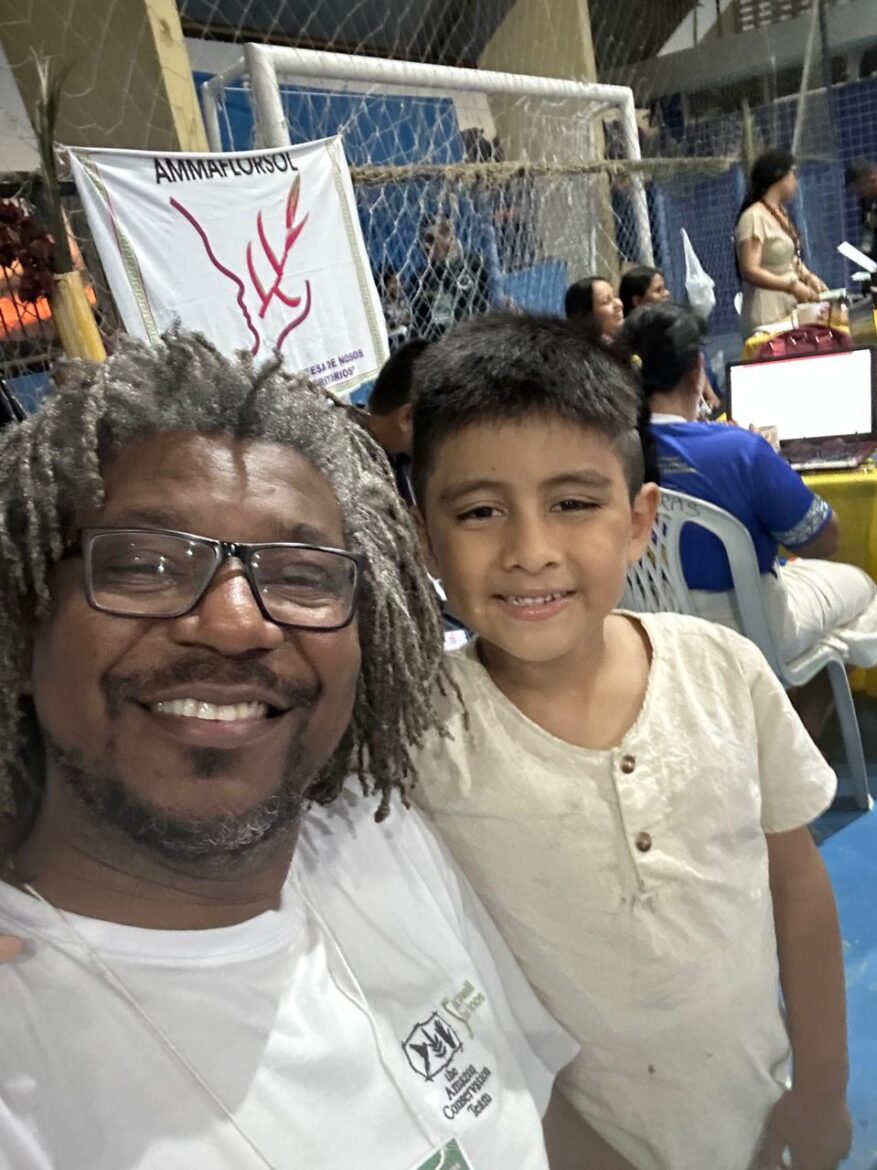
Education, Health, and the Future
The discussion around land rights was deeply connected to other essential Indigenous priorities, such as access to public health that respects cultural specificity, and the preservation of Indigenous languages, rituals, and ways of knowing that ensure cultural continuity for future generations—who were also present and engaged at the Assembly.
A special dialogue with Kokama children focused on Indigenous childhood and how to safeguard cultural identity from an early age.
“We’re on the right path. The future and the answers are us,” said Pedro Kokama, seven years old.
Another powerful moment was a tribute to roughly 20 Kokama individuals who are currently enrolled in or have completed higher education. This recognition renewed the call for public policies that ensure access to universities for Indigenous peoples and expand their visibility and representation in academic spaces.
ACT-Brasil Stands with the Kokama People
The 7th Assembly was supported by ACT-Brasil, with funding from the Andes Amazon Fund (AAF), which contributes to land tenure efforts in Indigenous demarcation processes, and from the RainForest Trust, a longstanding partner supporting ACT’s collaboration with multiple Indigenous communities. These partnerships are focused on land demarcation, protection, territorial monitoring, and institutional strengthening of the communities involved. Together, they reaffirm the importance of investing in initiatives that empower Indigenous peoples and bolster their autonomy.
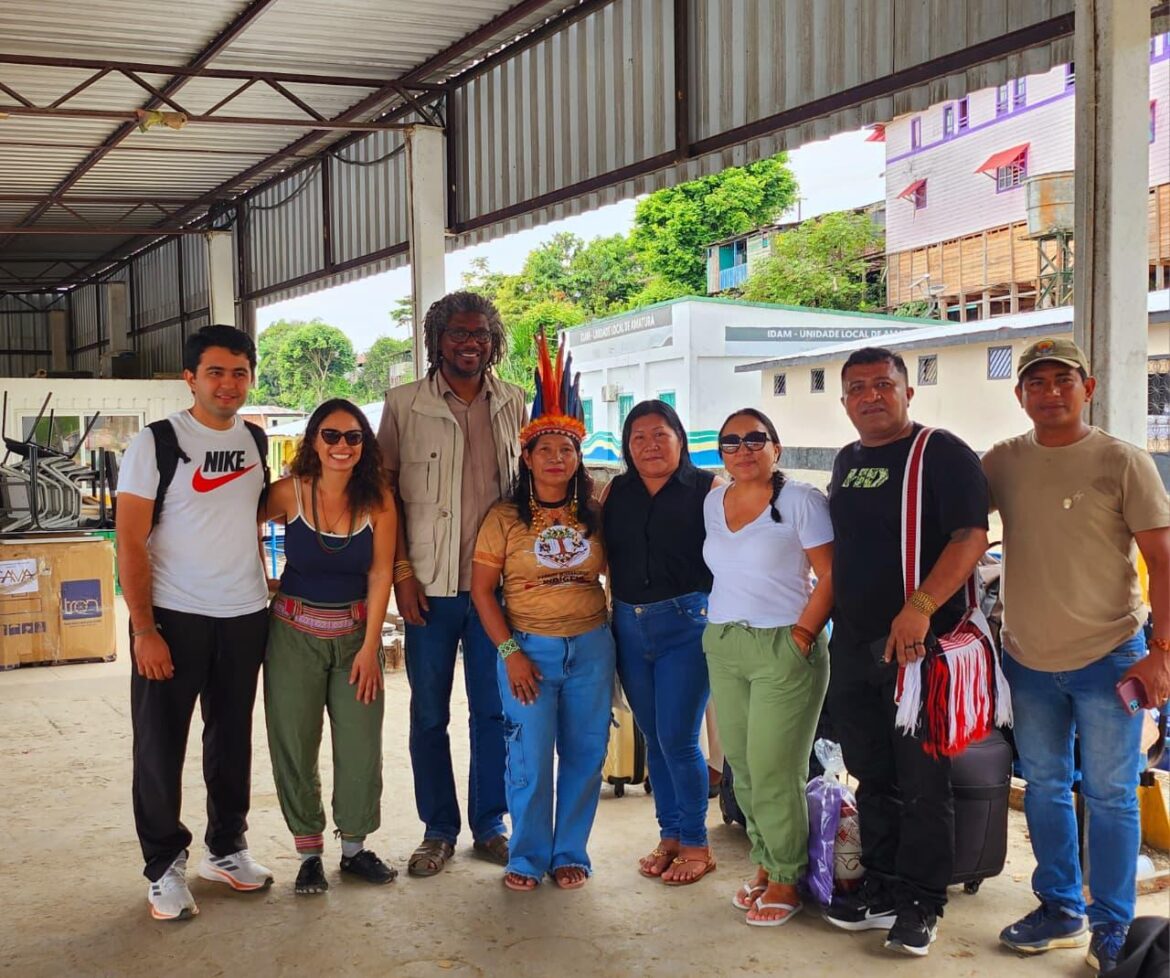
Beyond logistical support for the Assembly itself, ACT-Brasil also presented the Kokama people with a regional map of the Alto Rio Solimões, identifying existing Indigenous communities. So far, 82 communities have been mapped—despite challenges and the lack of official data that often renders these populations invisible.
According to Ricardo Londoño, geographer and field analyst at ACT-Brasil, this mapping work contributes not only to the territorial organization and governance of the Kokama people, but also to the assertion of their territorial presence and the strengthening of community bonds:
“This is ongoing work. Many communities still can’t be identified, because they are missing from national health databases and other official sources. Making these communities visible is fundamental to the protection of their territory. Visibility is a political strategy to affirm their existence and the importance of their rights and land,” Ricardo explains.
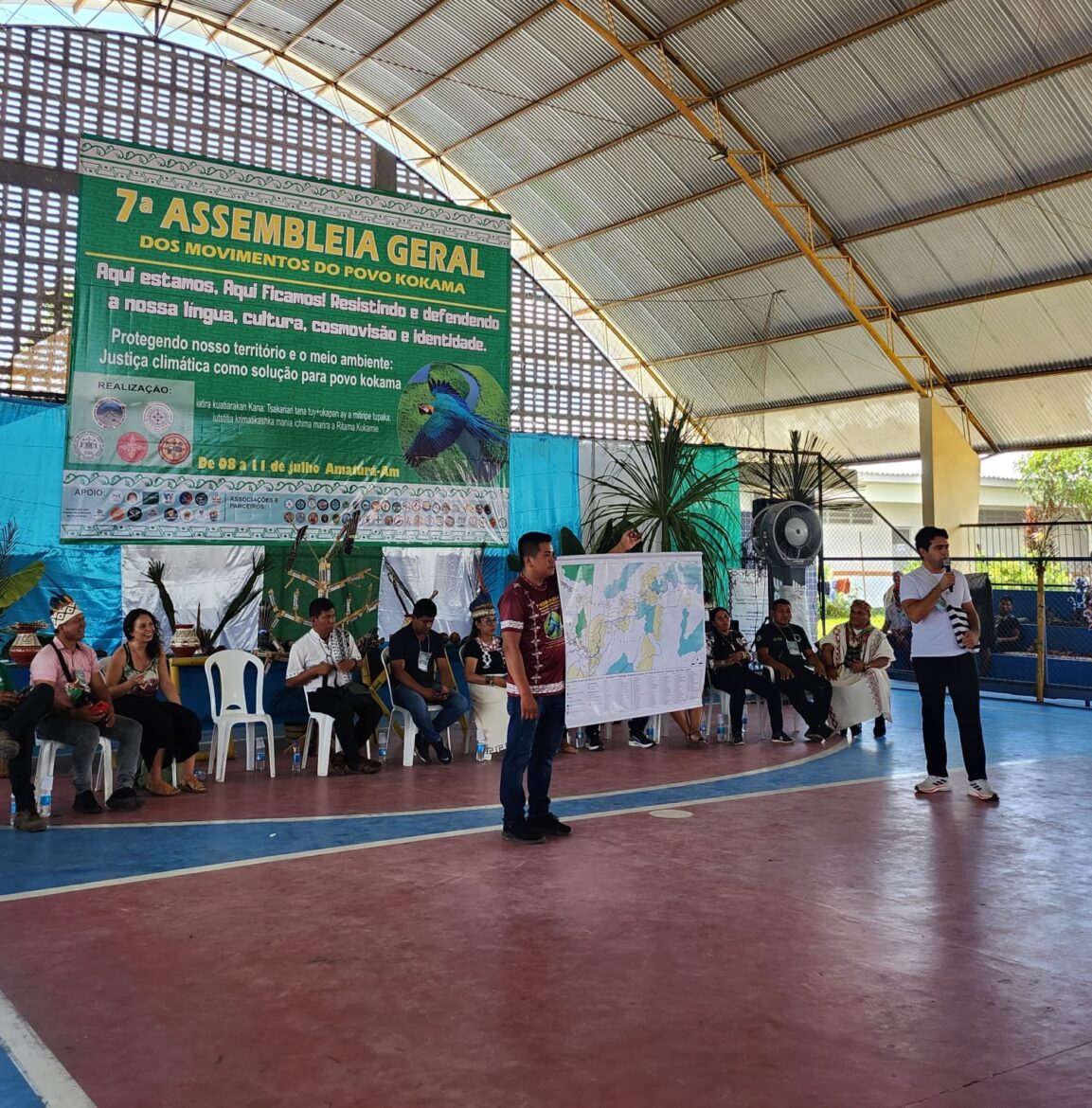
Climate Justice and Land Demarcation for Indigenous Peoples
On the final day of the Assembly, July 11, the Kokama people took to the streets of Amaturá in Amapá state to demand the demarcation and protection of their territories and to reject the Marco Temporal. “The Kokama people exist” was the cry that echoed throughout the march, holding that Indigenous knowledge, practices, and ways of life must be considered in all efforts to address climate change. The protection of the territory of the Kokama people — like that of many Indigenous peoples in Brazil — must be at the heart of climate justice discussions.
“We stand alongside Indigenous peoples to support their fight for their territories and the preservation of their ways of life … we understand that without the protection of Indigenous lands, there is no way for the planet to achieve climate justice,” emphasized Luiz Lopes, Executive Director of ACT-Brasil.
Don’t miss these powerful stories and updates. Sign up for our newsletter today!
Share this post
Bring awareness to our projects and mission by sharing this post with your friends.


